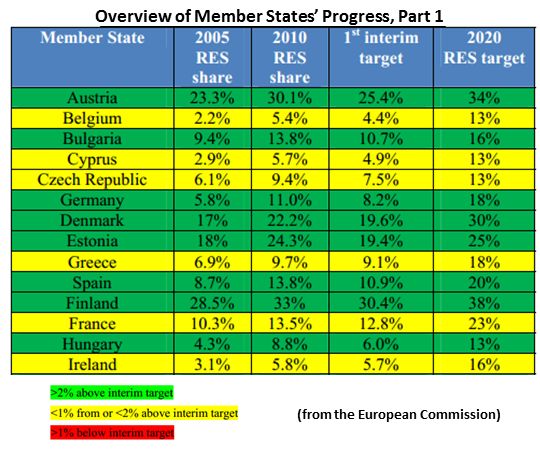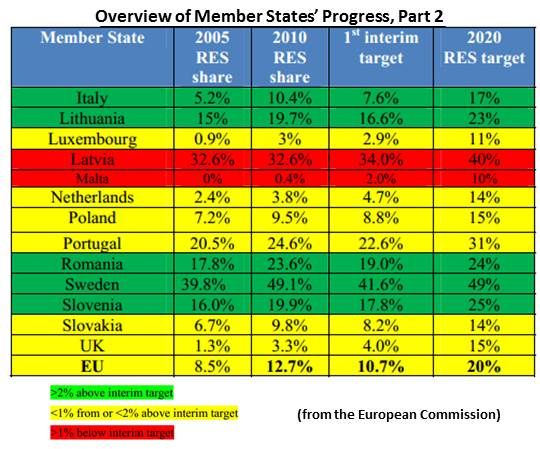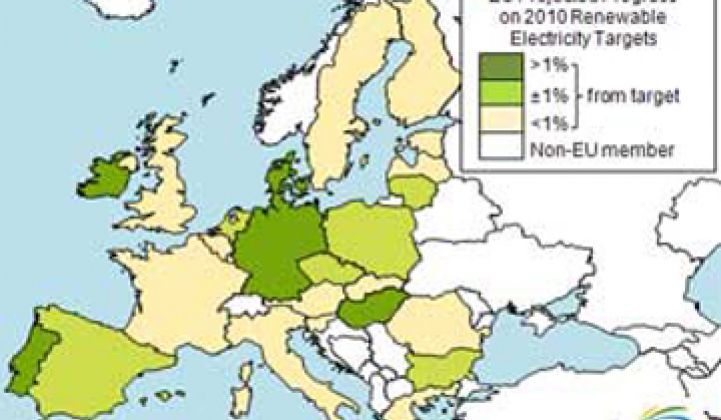The newest European Union (EU) statistics from Eurostat show its member nations are on track to meet their renewables targets but will need a new policy boost to keep up the pace.
Watching the EU’s cumulative progress toward its “triple twenty by 2020” targets is important because its leaders, especially Germany and Spain, set the benchmark for policy support of renewables internationally.
The EU’s “triple twenty by 2020” standard is aimed at getting 20 percent of their power from renewables, improving efficiency 20 percent, and cutting greenhouse gas emissions 20 percent.
The EU renewables mix is composed of onshore and offshore wind, photovoltaic solar, concentrating solar and solar hot water, hydro, wave, and tidal power, geothermal, and biomass used to generate electricity or produce biofuels.
The March 27 Report from the Commission to the European Parliament said policies to date have “resulted in strong growth.” Renewables accounted for 12.7 percent of the EU’s energy in 2010 and “the majority of Member States already reached their respective 2011/2012 interim target.”
One exception: The report found efforts to meet the EU’s requirement that each state’s transportation sector be 10 percent biofuel-powered by 2020 to be “too slow.” It added, however, that “further specific policy intervention” to drive that transition is not needed.
But because the policies that have driven progress to date require a ramping growth trajectory, it said, “current policies alone will be insufficient to trigger the required renewable energy deployment.”
The report recommended policy advances in three areas:
- Streamline administrative processes
- Expand transmission and improve renewables integration into power markets
- Make incentives and supports more stable, transparent, cost-effective, and market-based
Falling short of the 2020 renewables targets will have “major consequences,” the report said, because
- Renewables are the foundation on which emissions reductions and efficiency advances will be built
- Only with renewables can the EU transition from fossil fuel dependence to energy supply security and sustainability
- Falling short of binding targets could trigger European Commission infringement procedures against individual states
- Impeding renewables deployment would slow innovation and scaling and prevent EU technologies from achieving the competitive pricing necessary to win a place in the international market.





